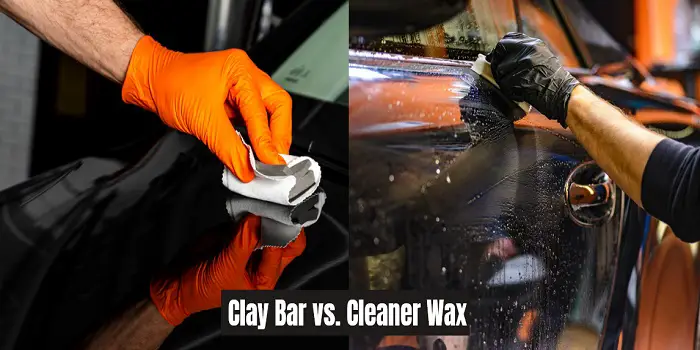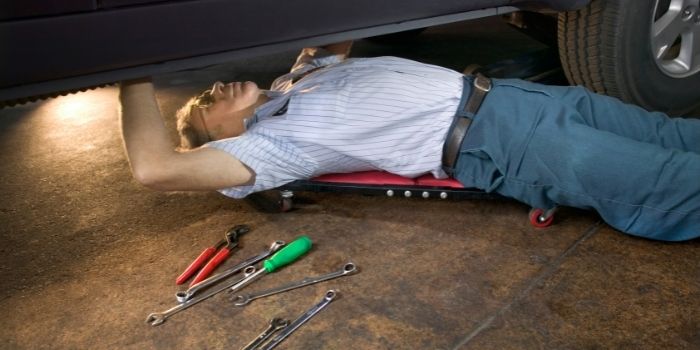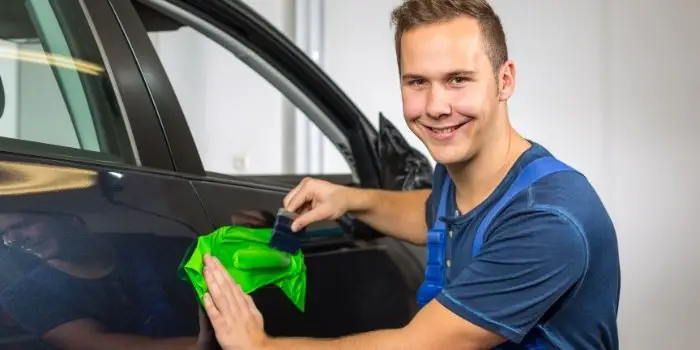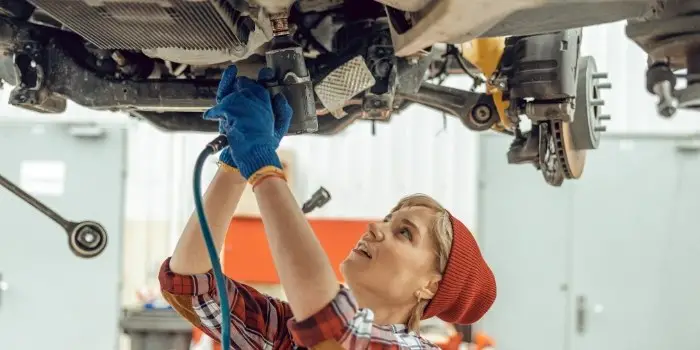Does the paint of your car feel rough even when freshly washed?
What happens is, many car owners think that after a proper wash, all they need to do is get the car dried with a microfiber cloth to get their car to appear as fresh as new.
Which is farther from the truth.
Even after all the washing and cleaning, there are still thousands and thousands of contaminants still left on your car’s surface, which later become swirls and ruin your paint’s finish.
In this article, you’ll discover how you can make use of a clay bar and a cleaner-wax to make sure your car finally gets a proper finish, what are they, what is the difference between them, and then finally which one is best for you.

Table of Contents
What is a Clay Bar?
Clay bar is a specialized elastic clay compound that helps in removing the unwanted particles from the surface of your automobile that a thorough car wash would never be able to remove.
This includes the following:
- Brake dust
- Metal sand
- Pollution caused by industry
- Grit on the road
Your automobile is being pummeled with microscopic particles that adhere to its surface wherever you go.
They can make their way to the clear protective coat of the paint and down to the metal frame.
If you run your fingertips along with the paint after washing your automobile, you’ll notice a lot of particle accumulation.
Is it a little bumpy?
You have particle accumulation.
However, a simple wash will not address the problem. You will require the detailing of a clay bar.
The Pros:
- Very good at removing any kind of contaminant such as acid rains, road tar, etc…
- Smooths out the surface and gives a glossy finish to the car
The Cons:
- Abrasive
- Stains the paint and makes its texture look bad
- Shouldn’t be used as an end all be all solution
What is a Cleaner Wax?
It is a type of waxing process that contains a chemical paint cleaner to eliminate extremely tiny surface flaws and impurity buildups while still providing a layer of protection.
The Pros:
- Intended to softly polish and disinfect your vehicle’s surface.
- The margins of tiny surface flaws are softly smoothed down, as a result, boosting visibility and clarity.
- Protects the car from getting scratches and swirls.
- Removes old, dirty wax which may be ruining the finish.
- It is a fairly fast procedure and gives results instantly.
The Cons:
- A major issue with many cleaning waxes is that they polish the surface with harsh chemicals and abrasive grit.
- Difficult to remove because of the powerful chemicals and wax.
- Damages the binding of the wax, resulting in less long-lasting protection.
- They may have the advantage of being fast but as with anything done in speed. They give a poor to below-average finish.
What is the Difference Between Clay Bar and Wax?
The clay creates a flat surface for waxing.
Remember the rough feel that you get when you touch the paint?
That will be gone after the clay bar is applied.
If you’ve never clayed your car before, you’ll be surprised at how much smoother it is when the roughness is gone.
Claying is vital because you want the wax to adhere to a completely clean clear coat that is free of these microscopic particles.
As it makes the surface smooth and resistant proof, the application of wax gets much simpler.
On the other hand, the primary aim of cleaner wax is removing anything that is left behind that your vehicle wash soap could not reach.
Cleaner waxes are often considered one-step solutions since they clean and shine in the same process.
The abrasives in cleaner wax technically remove a piece of the clear coat (as do all abrasives), which is why claying in conjunction with a proficient non-abrasive wax is a very safe and most successful way to clean the car and make it as fresh as new.
FAQs
Should I wash my car after the clay bar?
You should always wash your car after using a clay bar.
This will help remove any residual clay and grime that may be left behind.
It is also a good idea to wax your car after using a clay bar, as this will provide an extra layer of protection against the elements.
Do you need to strip wax before the clay bar?
No, you do not need to strip wax before using a clay bar.
In fact, it is often best to use a clay bar on a freshly waxed car. This will help remove any embedded dirt and grime that may be present.
Is ceramic wax better than regular wax for my car?
Ceramic waxes are typically more durable than traditional waxes, making them ideal for those who want long-lasting protection for their car.
Ceramic waxes can also provide a higher level of shine and gloss, giving your car a fresh, new look.
Conclusion
Most people don’t have the time to get claying done.
And typically, only go for a cleaner wax, since it’s a fast process and works as a cosmetic for the car.
But due to that rush, their car never gets the detailing they desire.
Solution?
Always go for a clay bar first. So that all the roughness and microparticles are removed properly.
And only then make use of cleaner wax on the car’s surface, which has already been smoothed out from claying.
That is how you get the best result for your car and ensure it stays beautiful for a long time.
Hope it solved all your queries and if you liked what you just read, please tell us in the comments and don’t forget to share it with your friends and family.

Based in Orem (Utah) John Paterson graduated from Utah Valley University and has begun writing in 2009. He has a large wealth of experience in writing articles related to cars, automotive repair, wheels, cleaning/maintenance, and much more. He has also written instructional articles in a similar niche for a few online publications as well. Currently, he works as a mechanic in his personal garage shop where he loves serving his countrymen from his heart.



